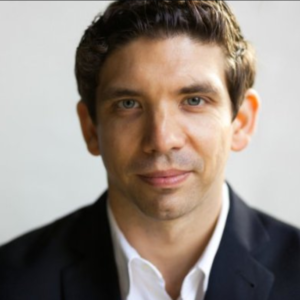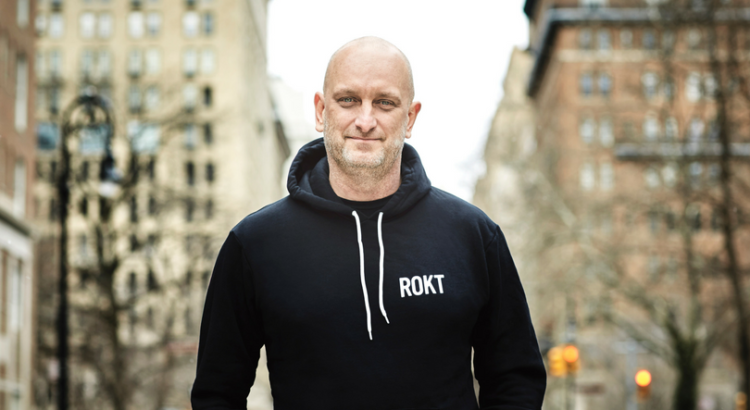Our friend Robin Block spoke recently with Bruce Buchanan, CEO of Sydney born ROKT, a transaction marketing firm that provides e-commerce companies and performance marketers the capability to connect with customers just as they make an online purchase. ROKT has successfully established an international presence and grown annually at near 100 per cent since 2012. This expansion is slated to continue as the company secured AU$ 34.5 million in capital investment earlier this year for a number of initiative, particularly acquisitional expansion. Robin spoke to Bruce about high-growth businesses and taking Australian brands international. (ROKT was the second highest ranked company in the Techboard Ranking of trending Australian startups and young tech companies for June 2017.)
Bruce: “I spent almost two years commuting from Sydney to New York. To be honest, that almost killed me, but it was a necessary hurdle to get ROKT to where it is today. We are constantly doing work on potential acquisitions and looking to expand our offering in regards to any technology that is at the intersection of e-commerce and marketing. We are investing heavily in product engineering and looking to open operations in Germany, France and Japan. We are also geared-up to expand in the UK, and are investing heavily in our commercial centres in New York.”
Prior to founding ROKT, Bruce was the CEO of Jetstar. He is widely credited as the force behind its international expansion and explosive growth. We sat down with Bruce to gain insight into his business strategy and understand how he has managed to take an Australian start-up into the international market and achieve triple digit growth for the second time.
Robin Block: ROKT is now the second high-growth business you have built — how do you manage that kind of expansion?
Bruce: It is essential to have clarity regarding the solution you are providing to the market. However, I think the most difficult and requisite aspect of managing a high-growth business is making sure that your organisation and people are capable of actually handling the expansion.
When growing at 100 percent plus, year after year, you are looking down the road 24 months at a situation where you are asking each of your managers to be doing 3-4 times their current role. You have to not only make sure that you are set up for the next month, but also that you have the long-term flexibility to deliver on commitments. This becomes even harder when looking to string together a community across disparate geographies.
The key to team building is to look at it as an ongoing process and leverage everything you have to ensure that you are constantly building capability. I was fortunate enough to have worked with some great people who wanted to join at the beginning — including Stuart Fitzroy and John Ho from Jetstar — and gained excellent talent early on — including Gemma Fredericks from eBay. We offer staff incentives for successful referrals and have worked with agencies. There is a chicken and egg aspect to business. As you become more successful, you attract better and better talent. The challenge is to work out how to bring in people that want to go on the broader journey with you.
To my mind, the single most important asset when recruiting people — and, therefore, one of the most important assets any business has — are direct line managers. The higher the quality of that first and second tier of management, the more likely you are to successfully train and engage new staff. There are other factors that are important to retaining talent — having great locations, allowing staff to work anywhere in the world and making sure everyone has a stake in the business by making them owners. We provide all of these things. However, they are secondary in importance to the quality of the direct managers within the company.
Robin Block: Is there a common thread or characteristic that you look for in people you hire?
Bruce: I tend to look for diversity in thinking over similarities. I find that people who approach problems from different perspectives ultimately give you a better solution together. However, cultural alignment around a couple of key values is important. This is something I stress because we operate 8 offices spread across the world. Because of this, I interview every single person who comes into ROKT — no matter how junior or in what location.
On the cultural front, we look for three core values. People who are focused more on the team than themselves — smart but humble. People who want to challenge the status quo and think there is a better way to do things. Lastly, people who want to enjoy that journey. On the competency side of things, we look for people that generally excel in one of three categories. First are what we call success behaviours — tenacity, drive, hunger. Second, good problem solvers — people who can take a disparate set of facts and work out how to piece them together logically while handling ambiguities. Lastly, good communicators. It takes all of those skills, often embodied by different people, to build a great business.
We work incredibly hard at maintaining a single company culture across multiple geographies. We get people together four times a year from all of our global offices. I find that you generally get more success through people who aren’t just interested in the business, but are also interested in you personally and are committed to the journey. I write a weekly report on everything that is going on in the business that is shared with every single team member. The business is structured around the shared belief that people are our greatest asset.
Robin Block: How have you been able to successfully break out of the Australian market and go international — do you have any advice for entrepreneurs specifically?
Bruce: I am fortunate to have built Jetstar in many markets. It gave me a fair amount of experience in building a brand outside of Australia that I was able to leverage it in growing ROKT. We initially focused on growth in the home market and then leveraged success we had in Australia with global brands to strategically expand into the marketplaces that were the most important to becoming the primary provider for those same brands. This meant expansion into the US and then, later, Europe. Landing contracts with companies like Ticketmaster and Expedia were big milestones.
To be an entrepreneur, you need a real radar sense of people — the ability to sense-check and understand innately the pulse of the business. You also need to be strategically driven and clear. Your message and vision needs to be communicated throughout the organisation without getting muffled. I think I was born with an innate drive to build businesses — but, I think you also need to have experiences that create resilience and tenacity. This comes through confronting difficulty and challenges. These two factors are what come together to create a person that ultimately becomes a successful entrepreneur. There are a lot of people with great ideas who fold after getting knocked back once, twice or three times. The trait that I have seen defining successful entrepreneurs around the world is an incredible drive. They aren’t necessarily the brightest people or those with the best ideas — they simply get back up and keep moving forward. Beyond that, it is simply important to cultivate an almost paranoid attitude regarding the market and competition — an obsession about the quality of your product.
I think being a company that was founded in Australia is a big part of our culture and something that has helped us succeed — the necessity of enjoying the journey is a very Australian thing that flows through everything about us. We also do every piece of our product development in Sydney. That makes us an unusual business as there aren’t that many businesses that build products in Australia but sell globally. However, that’s the great thing about technology — you can build and manufacture a product anywhere and be globally competitive. That is the core essence of who we are at ROKT.
View Rokt’s Website
View Rokt’s Techboard Profile which includes details of ROKT’s Techboard Rank, news, milestones and funding events since Techboard began tracking Rokt’s progress.

Robin Block is Head of Engagement at the MitchelLake Group in Sydney. Robin explores the human stories behind digital transformation and how they are changing the future of business.
